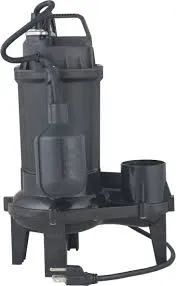English
- Afrikaans
- Albanian
- Amharic
- Arabic
- Armenian
- Azerbaijani
- Basque
- Belarusian
- Bengali
- Bosnian
- Bulgarian
- Catalan
- Cebuano
- Corsican
- Croatian
- Czech
- Danish
- Dutch
- English
- Esperanto
- Estonian
- Finnish
- French
- Frisian
- Galician
- Georgian
- German
- Greek
- Gujarati
- Haitian Creole
- hausa
- hawaiian
- Hebrew
- Hindi
- Miao
- Hungarian
- Icelandic
- igbo
- Indonesian
- irish
- Italian
- Japanese
- Javanese
- Kannada
- kazakh
- Khmer
- Rwandese
- Korean
- Kurdish
- Kyrgyz
- Lao
- Latin
- Latvian
- Lithuanian
- Luxembourgish
- Macedonian
- Malgashi
- Malay
- Malayalam
- Maltese
- Maori
- Marathi
- Mongolian
- Myanmar
- Nepali
- Norwegian
- Norwegian
- Occitan
- Pashto
- Persian
- Polish
- Portuguese
- Punjabi
- Romanian
- Russian
- Samoan
- Scottish Gaelic
- Serbian
- Sesotho
- Shona
- Sindhi
- Sinhala
- Slovak
- Slovenian
- Somali
- Spanish
- Sundanese
- Swahili
- Swedish
- Tagalog
- Tajik
- Tamil
- Tatar
- Telugu
- Thai
- Turkish
- Turkmen
- Ukrainian
- Urdu
- Uighur
- Uzbek
- Vietnamese
- Welsh
- Bantu
- Yiddish
- Yoruba
- Zulu
Telephone: +86 13120555503
Email: frank@cypump.com
Oct . 12, 2024 23:01 Back to list
slurry tanker pump for sale
Understanding Slurry Tanker Pumps Your Guide to Buying and Using Them
In various industries, the need for effective transportation of slurry— a mix of liquid and solid materials— is crucial. Slurry tanker pumps play an essential role in this process, allowing for the efficient transfer of such mixtures, whether in agriculture, construction, mining, or wastewater management. If you're considering buying a slurry tanker pump, this article will guide you through the important aspects to consider and the advantages they offer.
What is a Slurry Tanker Pump?
A slurry tanker pump is specifically designed to handle the challenging task of moving thick, viscous, and often abrasive materials. Unlike standard pumps, slurry pumps have special features that enable them to handle solids without clogging. These pumps can efficiently fill, transport, and unload slurry materials, making them invaluable in sectors dealing with mud, sludge, or other similar mixtures.
Key Features to Look for
1. Durability and Material Slurry pumps are exposed to harsh conditions, so materials such as stainless steel or high-chrome alloys are preferred for their durability and resistance to corrosion and wear.
2. Capacity and Flow Rate Depending on your project needs, you should choose a pump with an adequate flow rate and capacity. Larger tankers may require pumps that can handle high volumes continuously.
3. Pump Design Different pump designs are available, including centrifugal and positive displacement pumps. Centrifugal pumps are great for moving larger volumes at lower pressures, while positive displacement pumps are ideal for more viscous slurries.
4. Portability Many slurry tanker pumps come with features that enhance portability, such as wheels or mounts, which are beneficial for projects requiring transportation between multiple sites.
5. Ease of Maintenance Regular maintenance is key to the longevity of any mechanical device. Look for pumps that offer simplified designs for easy cleaning and servicing.
Applications of Slurry Tanker Pumps
Slurry tanker pumps have a wide range of applications across different industries
slurry tanker pump for sale

- Agriculture Used for transporting manure and other agricultural slurry to fields, thus ensuring effective nutrient application.
- Construction Commonly utilized in dewatering processes and transporting materials like cement slurries.
- Mining Essential for moving tailings and other slurry mixtures generated from the mineral extraction process.
- Wastewater Management Used to handle sludges generated in treatment plants, allowing for more efficient waste processing.
Advantages of Using Slurry Tanker Pumps
1. Efficiency Slurry pumps can drastically reduce the time spent handling liquid-solid mixtures compared to manual methods or using standard pumps.
2. Cost-Effectiveness Investing in a quality slurry pump can lead to significant savings in labor costs and reduce the risk of equipment damage that may occur with unsuitable pumps.
3. Increased Productivity With faster transfer times, businesses can increase throughput and reduce downtime, leading to a more efficient operation.
4. Versatility Many slurry pumps can handle various slurry types, allowing for a broader range of applications and reducing the need for multiple pump types.
Conclusion
Purchasing a slurry tanker pump tailored to your specific needs can elevate your operational efficiency. By considering durability, design, capacity, and application, you can make an informed decision that will benefit your business or project. Keep in mind that investing in a reliable slurry pump not only enhances productivity but also ensures that your operations run smoothly and effectively. Whether you're engaged in agriculture, construction, or any industry handling slurry, the right pump is a vital tool for success.
-
ISG Series Vertical Pipeline Pump - Chi Yuan Pumps | Advanced Engineering&Industrial Efficiency
NewsJul.30,2025
-
ISG Series Pipeline Pump - Chi Yuan Pumps | High Efficiency, Energy Saving
NewsJul.30,2025
-
ISG Series Vertical Pipeline Pump-Chi Yuan Pumps|High Efficiency&Reliable Performance
NewsJul.29,2025
-
ISG Series Vertical Pipeline Pump|High Efficiency&Low Noise
NewsJul.29,2025
-
ISG Series Vertical Pipeline Pump - Chi Yuan Pumps Co., LTD.|High Efficiency, Energy Conservation, Low Noise
NewsJul.29,2025
-
ISG Series Vertical Pipeline Pump-Chi Yuan Pumps Co., LTD.|High Efficiency&Energy-Saving
NewsJul.29,2025










